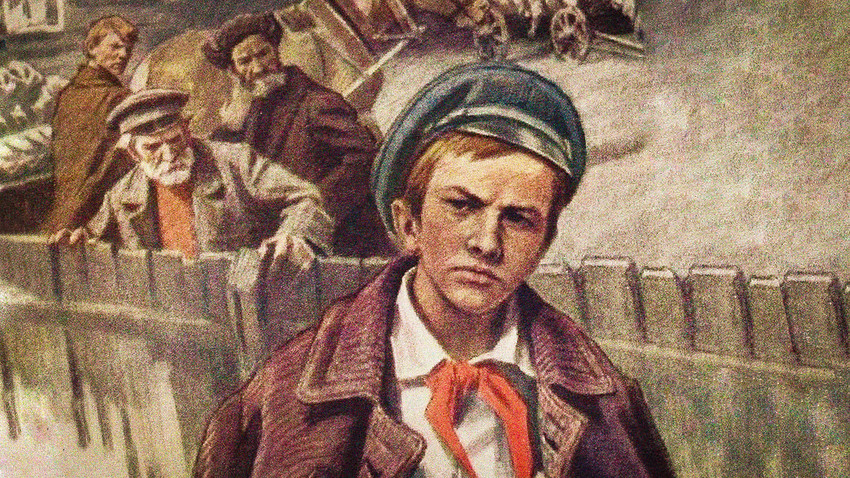
“Pavel Morozov fought the enemy and taught others how to do it. He addressed the whole village and exposed his father!” That’s a line from a 1930’s poem by a famous Soviet poet. There was an array of other poems, songs, books, slide films, and even an opera devoted to that Soviet boy
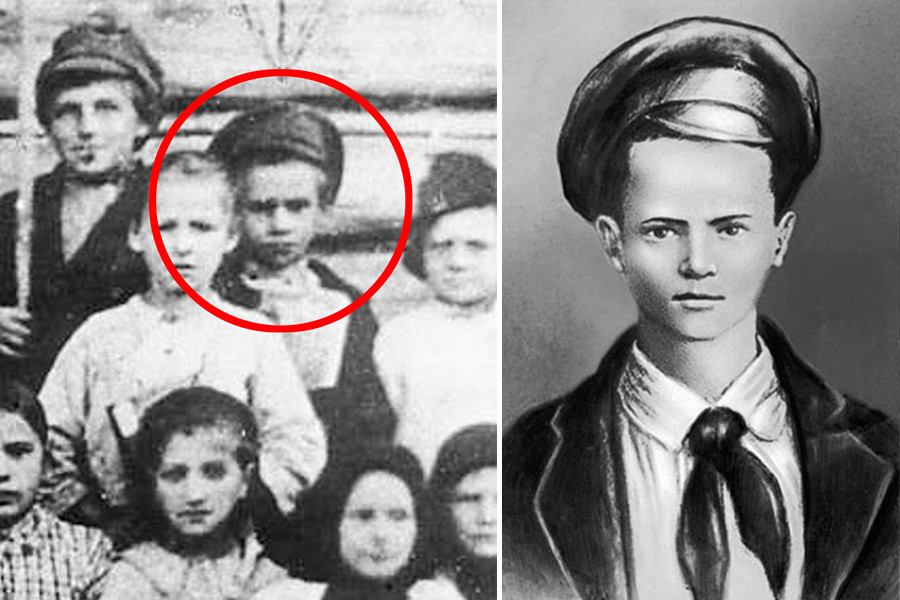
Pavel Morozov was listed in the Soviet youth pioneer organization as Pioneer #001
Public domainPavel (diminutive – Pavlik) Morozov was a 13-year-old boy living in a remote Siberian village who together with his younger brother, Feodor, was brutally murdered in the early 1930s. The Soviet state portrayed the murder as an act of class struggle – Pavlik, who was an enthusiastic young Communist, allegedly fell prey to the richer, anti-Soviet stratum of the village, the kulaks. This was the era of a major reform of Soviet
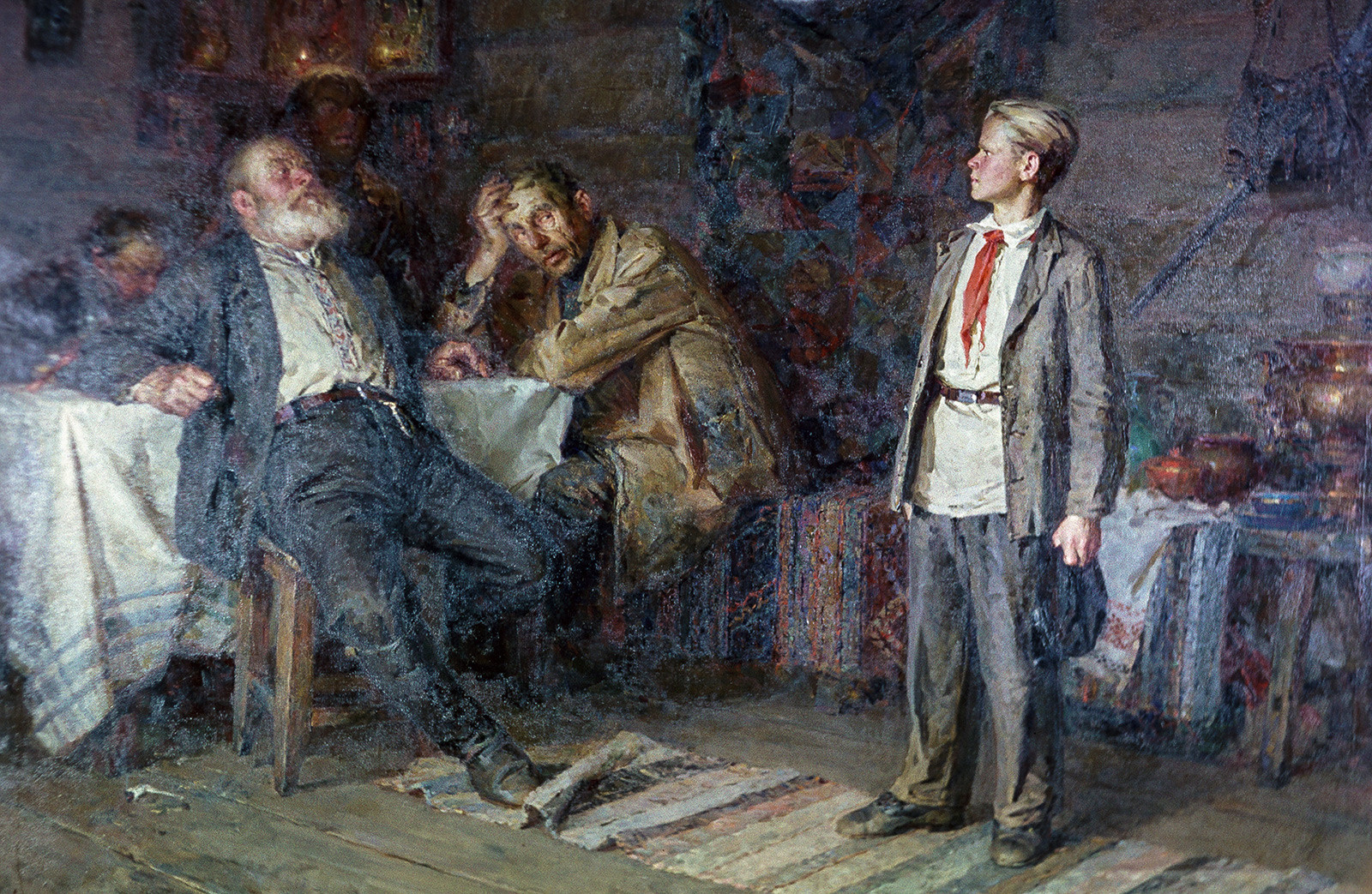
'Pavlik Morozov' by Nikita Chebakov, 1952
Saikov/SputnikThis official version of events existed unchallenged for decades until Gorbachev’s perestroika in the late 1980s. Then the hero suddenly was turned into a traitor. Yuri Druzhnikov, a dissident writer who left the Soviet Union, published a book that was tellingly titled, Informer 001 or The Rise of Pavlik Morozov. The boy was portrayed negatively – as a traitor of his closest relatives. He allegedly liked “playing dirty tricks on others,” including his own family. In Druzhnikov’s words, Pavel was not a pioneer. Moreover, the murder was a provocation organized by the state security service, which was eager to make a political case out of the boy’s death
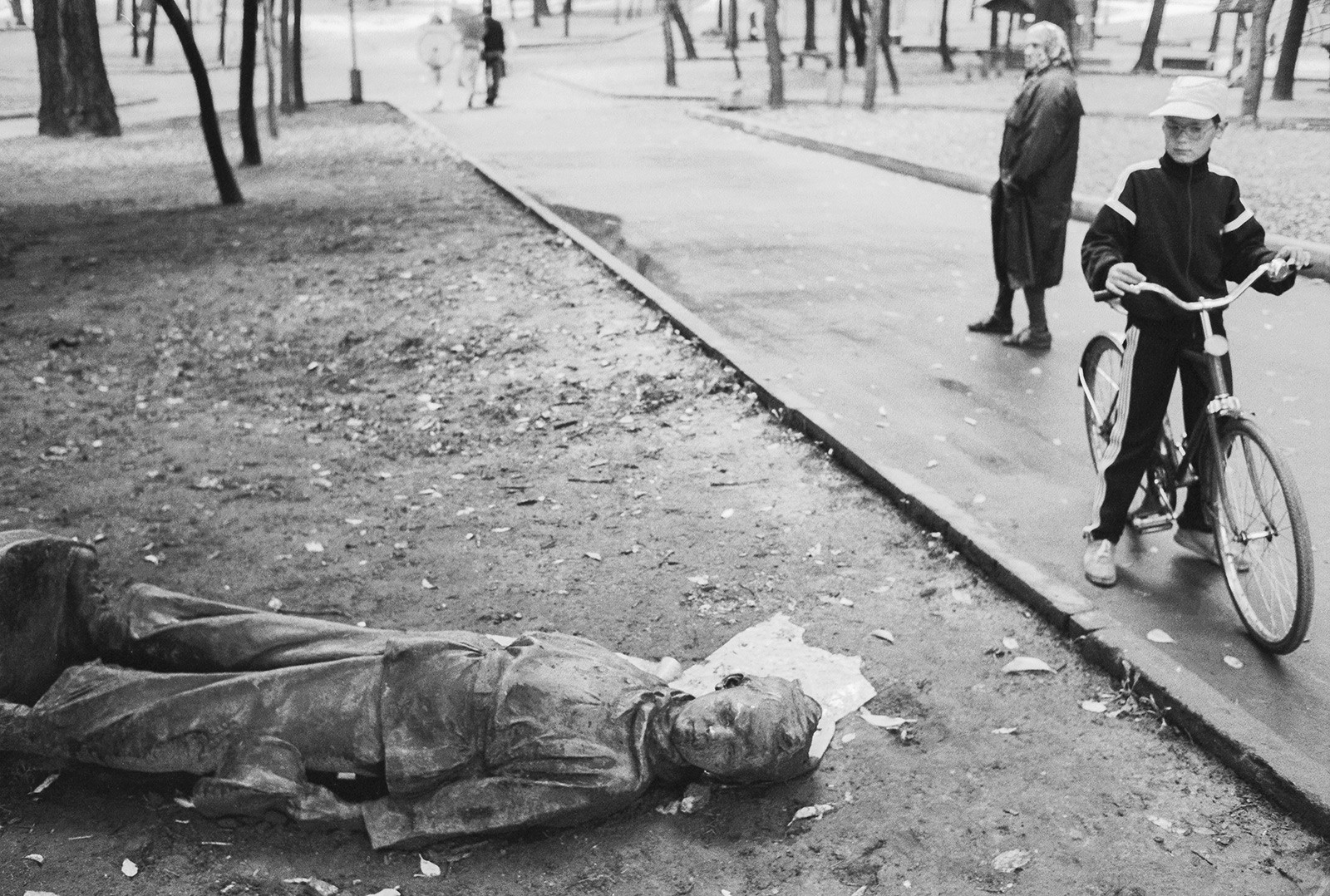
Downed statue of Pavlik Morozov
Valery Khristoforov/TASSNew songs about the boy appeared, such as one by the famous rock group, Krematoriy. Pavel was no longer a hero but now a sort of a demon - an eternal evil spirit that travels
The sudden turn towards demonization shocked many Soviet people, especially those who knew Pavel. They were still alive at that time. An open letter by Pavel’s first teacher, Larisa Isakova, was published in a newspaper. She wrote about Pavel’s father who she blamed for corruption (he was a local council chairman), and who “abused alcohol and beat his wife.
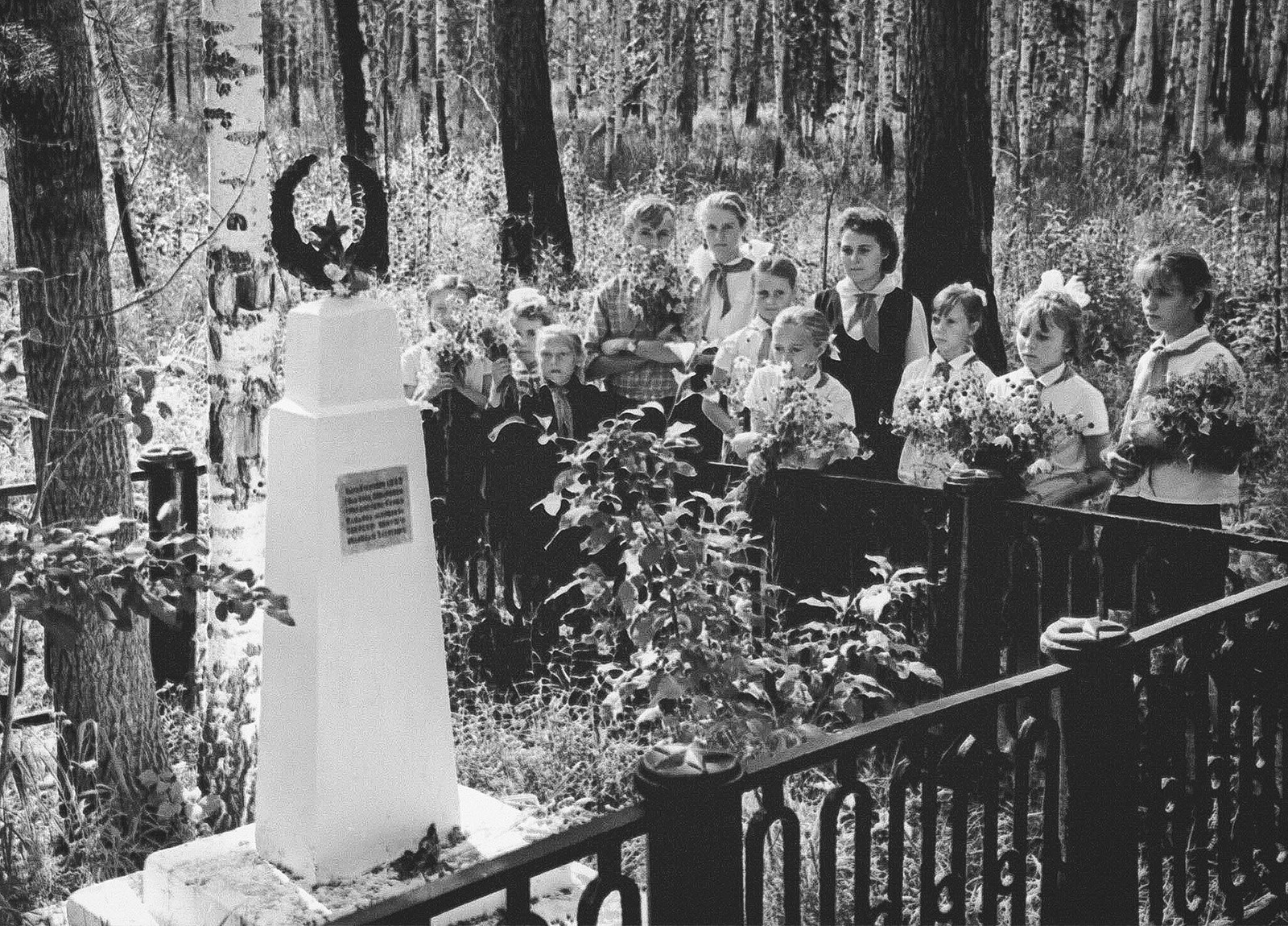
Pioneers visiting the place where the body of Pavlik Morozov was found
Anatoly Grakhov/TASSAs it turned out, the official story was wrong regarding one moment: Pavel did not snitch on his father and did not file a complaint. He most probably testified at court supporting his mother’s testimony. At the same time there seem to be no grounds to doubt his communist convictions.
What was the primary motive for Pavel's murder – personal hatred on the part of his relatives, or Pavel’s political activism in the village? That question can’t be answered for sure. However, when Russia’s General prosecutor’s office got the request to rehabilitate those convicted for Pavel’s murder 20 years ago, it refused to do so. The verdict was upheld by the High Court, thus confirming the official Soviet version. At the same time if one takes a look at the contemporary Russian press it will not be easy to find any definite opinion about the boy's case. There are still only questions.
Read here about the controversy surrounding the issue of the number of the Stalinist terror's victims.
If using any of Russia Beyond's content, partly or in full, always provide an active hyperlink to the original material.
Subscribe
to our newsletter!
Get the week's best stories straight to your inbox